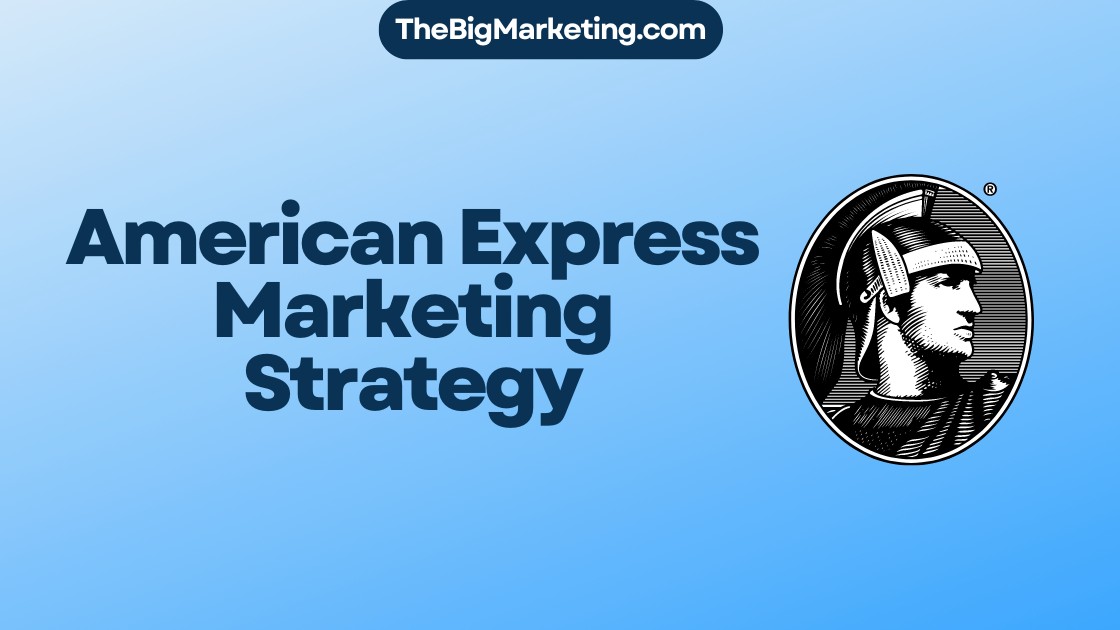The Ritz-Carlton Hotel Company is renowned for its luxury offerings and superior customer experience. With a strong brand positioning in the upscale hotel market, the company has embraced digital marketing and adapted to the ever-evolving hospitality industry trends. In this case study, we will delve into the Ritz-Carlton’s marketing strategy, exploring their customer-centric approach, innovative digital initiatives, and effective loyalty programs.
Key Takeaways:
- The Ritz-Carlton focuses on providing an exceptional customer experience in the luxury hotel market.
- The company embraces digital marketing strategies to reach its target audience effectively.
- Through innovative loyalty programs, the Ritz-Carlton builds long-lasting relationships with its customers.
- The brand’s positioning in the market ensures it remains a top choice for discerning travelers.
- The Ritz-Carlton’s marketing strategy aligns with industry trends to stay competitive in the ever-changing marketplace.
The Importance of Authentic Customer Service Style
Today’s customers, including the Millennial generation, value genuine and authentic customer experiences. They reject scripted, inauthentic service and appreciate personalized interactions.
The Ritz-Carlton Hotel Company recognized the need to update its customer service style after receiving feedback from guests who felt the previous scripted approach was too formal and traditional. The brand now emphasizes authentic, unscripted conversations and interactions with customers to create a more genuine and personalized experience.
Customer Preferences and the Millennial Generation
Customer preferences have evolved over time, and the Millennial generation, in particular, has had a significant impact on shaping customer expectations. Millennials value transparency, individuality, and personalization. They seek authentic and meaningful interactions, favoring businesses that align with their values and provide personalized experiences.
By adapting its customer service style to meet these preferences, The Ritz-Carlton Hotel Company has been able to attract and retain Millennial customers. The brand’s focus on authenticity and personalized interactions has resonated with this generation, leading to increased customer loyalty and positive word-of-mouth recommendations.
The Evolution of Ritz-Carlton’s Customer Service Style
When it comes to customer service, the Ritz-Carlton Hotel Company has always strived for excellence. In the past, the brand employed a standardized language and scripted phrases for its employees, aiming to create a unified brand identity. However, as customer preferences began to shift, these prescribed language choices started sounding insincere and robotic.
Customer feedback in the mid-2000s played a crucial role in highlighting the need for change. Guests expressed that the scripted approach made the brand appear inauthentic and disconnected from their needs and desires. The Ritz-Carlton swiftly recognized the importance of evolving its customer service style to align with the changing expectations of its guests.
To address this issue, the Ritz-Carlton eliminated the use of standardized language and scripted phrases. Instead, they encouraged their employees to engage in natural, unscripted conversations with guests. This shift allowed for more genuine interactions and personalized experiences, enhancing customer satisfaction and loyalty.
Highlights of the Evolution:
- Elimination of standardized language and scripted phrases
- Emphasis on natural, unscripted conversations
- Enhanced customer satisfaction and loyalty
This evolution in customer service style has led to a more authentic and personalized experience for guests staying at Ritz-Carlton properties. By prioritizing genuine interactions over scripted responses, the brand has successfully aligned itself with the evolving expectations of customers in the luxury hospitality industry.
| Benefits of the Evolution | Impact on Customer Satisfaction | Effect on Customer Loyalty |
|---|---|---|
| More genuine and personalized experiences | Increased satisfaction due to authentic interactions | Enhanced loyalty through personalized attention |
| Improved customer perception of the brand | Higher likelihood of positive reviews and recommendations | Repeat visits and long-term loyalty |
| Engaged and satisfied customers | Enhanced word-of-mouth marketing | Reduced customer churn |
The “Leave Better” Global Brand Campaign
The Ritz-Carlton recently launched its “Leave Better” global brand campaign, a key component of its comprehensive marketing strategy. With a focus on providing tailored experiences, this campaign aims to resonate with a global audience and enhance the brand’s image of comfort and transformation. Through artful shots and metaphors, the campaign invites guests to embark on a journey of self-discovery and personal growth during their stays.
The “Leave Better” campaign showcases the transformative experiences that guests can have at Ritz-Carlton hotels. It highlights the profound impact that travel can have on individuals, allowing them to step out of their comfort zones, explore new cultures, and create lasting memories.
The campaign seeks to position Ritz-Carlton as a provider of tailored experiences, catering to the unique needs and preferences of each guest. Whether it’s a rejuvenating spa treatment, a culinary adventure, or an immersive cultural excursion, the brand aims to create unforgettable moments that leave a lasting impression.
This global brand campaign will be rolled out across multiple international markets, ensuring a wide reach and resonance with diverse audiences. By showcasing the brand’s commitment to delivering exceptional experiences, Ritz-Carlton aims to solidify its position as a leader in the luxury hospitality industry.
Through the “Leave Better” campaign, Ritz-Carlton strives to create a brand image that is synonymous with comfort, tailored experiences, and personal transformation. This marketing initiative showcases the brand’s dedication to exceeding customer expectations and providing unforgettable moments that leave a lasting impact.
As the campaign continues to unfold, guests can expect to be inspired and encouraged to embark on a journey of self-discovery and personal growth during their stays at Ritz-Carlton hotels around the world.
Social Media and Brand Equity
In today’s digital age, businesses need to optimize their online presence across social media platforms to enhance their brand equity. The Ritz-Carlton Hotel is no exception, utilizing platforms such as Instagram and Facebook to strengthen its brand image and foster customer engagement.
By leveraging social media, the Ritz-Carlton is able to share captivating content that aligns with the principles of luxury branding. Through visually appealing posts, the brand showcases its commitment to exceptional service, quality, and exclusivity.
Moreover, social media platforms provide a crucial channel for direct communication and interaction with customers. Engaging with followers’ comments and messages allows the Ritz-Carlton to gather feedback, address concerns, and build strong relationships with its audience. By fostering this two-way engagement, the brand strengthens customer loyalty and solidifies its position as a leading luxury hotel.
The Ritz-Carlton’s online presence on social media platforms has not only enhanced its brand equity but also served as a platform for showcasing unique experiences and offerings. Through carefully curated posts and captivating content, the brand entices potential customers with glimpses into its world of luxury.
This strategic use of social media, combined with the Ritz-Carlton’s exceptional service and commitment to customer satisfaction, has helped it establish a strong brand equity that resonates with discerning travelers across the globe.
Brand Equity and Social Media Metrics Overview
In order to measure the impact of its social media efforts on brand equity, the Ritz-Carlton tracks various metrics including:
- Number of followers and engagement rate on social media platforms
- Shares, likes, and comments on posts
- Reach and impressions of social media content
- Sentiment analysis of customer reviews and mentions
- Website traffic and conversions from social media
Through the analysis of these metrics, the Ritz-Carlton can gain insights into the effectiveness of its social media strategy and make data-driven decisions to further enhance its brand equity.
| Social Media Metrics | Performance |
|---|---|
| Number of followers and engagement rate on social media platforms | Consistently growing follower base and high engagement rate on platforms such as Instagram and Facebook |
| Shares, likes, and comments on posts | Posts regularly receive a high volume of shares, likes, and comments, indicating strong audience engagement |
| Reach and impressions of social media content | Content consistently reaches a broad audience and generates a high number of impressions |
| Sentiment analysis of customer reviews and mentions | Positive sentiment overwhelmingly dominates customer reviews and mentions on social media, highlighting a strong brand reputation |
| Website traffic and conversions from social media | Social media platforms drive significant traffic to the Ritz-Carlton’s website, resulting in a high rate of conversions |
Integrating Social Media Marketing Strategy
The Ritz-Carlton Hotel recognizes the importance of integrating social media marketing strategies in the luxury business travel industry. By leveraging the power of social media, the brand can effectively reach its target audience, enhance customer engagement, and create tailored experiences that resonate with their discerning guests.
Captivating Content Creation
One of the key pillars of social media marketing is the creation of captivating content that captures the attention and interest of the target audience. The Ritz-Carlton Hotel understands the need to provide valuable and engaging content to its followers on platforms such as Instagram, Facebook, and Twitter. Through visually stunning images and compelling storytelling, the brand showcases its luxurious accommodations, personalized services, and unique amenities, enticing luxury travelers to choose the Ritz-Carlton experience.
Leveraging Influencer Partnerships
In addition to creating captivating content, the Ritz-Carlton Hotel establishes strategic partnerships with influential individuals in the luxury travel industry. These influencers, renowned for their expertise and credibility, promote the brand’s offerings to their dedicated followers, amplifying the reach and impact of the Ritz-Carlton’s social media marketing efforts. By collaborating with influencers who align with the brand’s values and target audience, the Ritz-Carlton Hotel can effectively tap into new markets and attract potential guests seeking tailored luxury experiences.
Enhancing Customer Engagement
Social media platforms provide unique opportunities for the Ritz-Carlton Hotel to engage with its customers on a personal level. By responding to comments, messages, and reviews in a timely and authentic manner, the brand shows its commitment to excellent customer service and builds meaningful connections with its audience. The Ritz-Carlton Hotel recognizes the value of customer feedback and uses social media platforms as a channel for gathering insights, addressing concerns, and continuously improving its services, ensuring that every guest has a tailored and memorable experience.
| Benefits of Integrating Social Media Marketing Strategy | How it Enhances Luxury Business Travel |
|---|---|
| Increased Brand Awareness | By utilizing social media platforms, the Ritz-Carlton Hotel can reach a wider audience, increasing brand visibility and recognition in the luxury travel market. |
| Improved Customer Satisfaction | Through personalized engagements on social media, the Ritz-Carlton Hotel can address customer inquiries and concerns promptly, leading to enhanced satisfaction and loyalty. |
| Stronger Brand Image | By consistently sharing valuable and visually appealing content, the Ritz-Carlton Hotel establishes itself as a luxury travel authority, reinforcing its brand image and reputation. |
| Deeper Emotional Connections | Engaging with customers on social media allows the Ritz-Carlton Hotel to foster emotional connections, creating a sense of personalization and exclusivity in the luxury travel experience. |
By integrating social media marketing strategies, the Ritz-Carlton Hotel can harness the power of digital platforms to showcase its luxurious offerings, tailor experiences to its target audience, and build strong emotional connections with its customers. In an industry driven by personalized experiences and customer engagement, the incorporation of social media marketing is paramount for the Ritz-Carlton Hotel’s continued success in the luxury business travel market.
The Four Ps of Marketing in Luxury Hospitality
In luxury hospitality marketing, the four Ps of marketing (product, pricing, promotion, and place) are crucial elements that contribute to the success of a brand. The Ritz-Carlton Hotel embraces these principles to create a superior experience for its discerning customers.
Pricing Strategies
The Ritz-Carlton Hotel understands the importance of pricing strategies that accurately reflect the value of its offerings. By meticulously evaluating the market, the brand ensures that its pricing aligns with the luxury experience it provides. This strategy allows the Ritz-Carlton to position itself as a premium hospitality brand, catering to customers who prioritize quality and exclusivity.
Digital Accessibility
In today’s digital era, providing digital accessibility is crucial for attracting and engaging customers. The Ritz-Carlton Hotel leverages technology and digital platforms to offer seamless access to its services. This includes user-friendly websites, mobile apps, and online reservation systems that provide convenience and ease of use for customers, enhancing their overall experience.
Promotion
The Ritz-Carlton Hotel utilizes various channels for promotion, including social media platforms, online advertising, and partnerships with influencers and industry leaders. By showcasing its luxurious amenities, exceptional service, and personalized experiences, the brand effectively communicates its value proposition to its target audience. Through targeted promotion, the Ritz-Carlton Hotel builds brand awareness and attracts customers who seek exclusive and memorable hospitality experiences.
Location
Strategic location selection is another essential aspect of the Ritz-Carlton’s marketing strategy. The brand carefully chooses its locations to offer customers a premium experience in desirable destinations. Whether it’s a beachfront resort or a city center hotel, the Ritz-Carlton ensures that its properties are situated in prime locations that align with its customers’ preferences and fulfill their aspirations for luxurious travel.
By focusing on these four Ps of marketing, the Ritz-Carlton Hotel maximizes customer satisfaction and perceived value. The brand’s commitment to providing exceptional products, competitive pricing, effective promotion, and strategic locations reinforces its position as a leader in the luxury hospitality industry.
Luxury Brand Reputation and Crisis Management on Social Media
Maintaining a positive reputation is crucial for luxury brands, as it directly impacts their success and customer perception. In today’s digital era, social media platforms have become powerful tools for reputation management, especially during times of crisis. Luxury brands, such as the Ritz-Carlton, understand the importance of effectively managing their brand image on social media to mitigate potential damage and maintain their esteemed reputation.
Studies have shown that prompt and appropriate responses on social media can significantly influence how a luxury brand is perceived during a crisis. By attentively considering customer responses and expectations, brands can demonstrate their commitment to customer satisfaction and address concerns in a timely manner. This proactive approach not only helps in damage control but also reaffirms the brand’s dedication to exceptional customer service and builds trust among their audience.
Moreover, social media platforms provide luxury brands with an opportunity to showcase their corporate social responsibility efforts. By actively engaging with their audience during challenging times, brands can communicate effectively and transparently, reinforcing their commitment to ethical practices and social causes. This communication can significantly influence brand image and customer perception, fostering a positive emotional connection with the audience.
The Role of Social Media Platforms
Social media platforms act as a direct channel of communication between luxury brands and their customers. They enable brands to not only address customer feedback and concerns promptly but also showcase their strengths, values, and distinctive features. By leveraging these platforms effectively, luxury brands like the Ritz-Carlton can create a stronger brand presence and maintain a favorable reputation.
Capitalizing on Customer Response and Engagement
Customer response and engagement are valuable metrics that luxury brands must pay close attention to. Social media platforms provide a platform for customers to share their experiences, opinions, and concerns. By actively monitoring and responding to customer comments on social media, luxury brands can demonstrate their commitment to customer satisfaction, showcase their responsiveness, and build positive relationships with their audience.
Additionally, luxury brands can utilize social media platforms as a means of collecting valuable customer insights and feedback. By analyzing customer preferences, interests, and expectations, brands can tailor their products and services to better meet the needs of their target audience. This level of customization further enhances the brand’s reputation and fosters customer loyalty.
| Social Media Platform | Benefits for Luxury Brands |
|---|---|
| Allows for visually appealing content promotion, showcasing the brand’s luxurious offerings and experiences. | |
| Enables direct customer engagement, encouraging conversations, and reinforcing brand loyalty. | |
| Facilitates real-time communication and customer support, addressing queries and concerns promptly. |
Evidence of a luxury brand’s effective reputation management and customer engagement on social media can significantly impact brand image, perception, and customer loyalty. By utilizing these platforms strategically and proactively, luxury brands can strengthen their reputation, foster positive customer sentiment, and maintain a strong competitive edge in the market.
The Impact of Social Media on Customer Satisfaction and Loyalty
Social media platforms play a pivotal role in enhancing customer satisfaction and promoting customer loyalty within the luxury travel industry. Through active engagement, the sharing of engaging multimedia content, and leveraging social influence, luxury brands like the Ritz-Carlton can cultivate a strong sense of client loyalty and connection. Research indicates that various factors contribute to the usage and impact of social media on luxury business travel, including trust, perceived advantage, accessibility, enjoyment, and social influence.
When luxury brands effectively harness social media platforms, they can strengthen customer relationships and encourage repeat business. By leveraging social media for customer engagement, brands can foster a sense of community and personalized connection with their customers. This connection helps to enhance overall satisfaction and drive loyalty, as customers feel more connected to the brand and its offerings.
The Power of Engaging Multimedia Content
One of the key elements in utilizing social media for customer satisfaction and loyalty is the creation and sharing of engaging multimedia content. Luxury brands like the Ritz-Carlton can leverage the power of captivating visuals, videos, and interactive elements to create immersive brand experiences on social media platforms. By sharing visually stunning content that evokes the luxury travel experience, brands can effectively capture the attention and interest of their target audience, fostering a deeper emotional connection and driving greater satisfaction and loyalty.
The Role of Social Influence
Social influence plays a significant role in social media’s impact on customer satisfaction and loyalty within the luxury travel industry. When influencers with substantial followings endorse and engage with luxury brands, it enhances brand credibility and elevates the perception of the brand’s offerings. By strategically partnering with relevant influencers who align with their target audience, luxury brands can drive customer engagement, strengthen brand loyalty, and increase customer satisfaction through the endorsement and validation provided by trusted social media personalities.
Additionally, social media platforms enable customers to share their experiences and recommendations, further amplifying the influence of social proof. Positive customer reviews and recommendations on social media platforms can enhance brand credibility, attract new customers, and bolster customer loyalty within the luxury travel industry.
Overall, social media’s impact on customer satisfaction and loyalty in the luxury travel industry is extensive. Through engagement, the sharing of multimedia content, and the utilization of social influence, luxury brands like the Ritz-Carlton can create a strong sense of client loyalty and connection. By effectively leveraging social media platforms, luxury brands can foster deeper customer relationships, enhance overall satisfaction, and drive long-term loyalty in the competitive luxury travel market.
Conclusion
Throughout this case study, we have explored the comprehensive marketing strategy employed by the Ritz-Carlton Hotel. By prioritizing an authentic customer service style, integrating social media marketing, leveraging the four Ps of luxury hospitality marketing, managing brand reputation on social media, and understanding the impact of social media on customer satisfaction and loyalty, the Ritz-Carlton has established itself as a leader in the luxury hotel market.
This renowned brand’s commitment to providing exceptional customer experiences and personalized care has positioned it at the forefront of the industry. By staying abreast of digital marketing trends and implementing innovative strategies, such as tailored messaging and captivating content on social media, the Ritz-Carlton effectively engages with its discerning clientele. It also consistently reinforces its brand image and values, ensuring customer loyalty and attracting new guests seeking upscale hotel experiences.
As the hospitality industry continues to evolve, the Ritz-Carlton’s marketing strategy serves as a beacon of success. By understanding the importance of customer experience, effective brand positioning, and digital marketing, the Ritz-Carlton Hotel continues to set industry standards. Its customer loyalty programs, combined with a focus on personalized service and attention to detail, solidify its reputation as a luxury hotel of choice for travelers seeking remarkable experiences.






